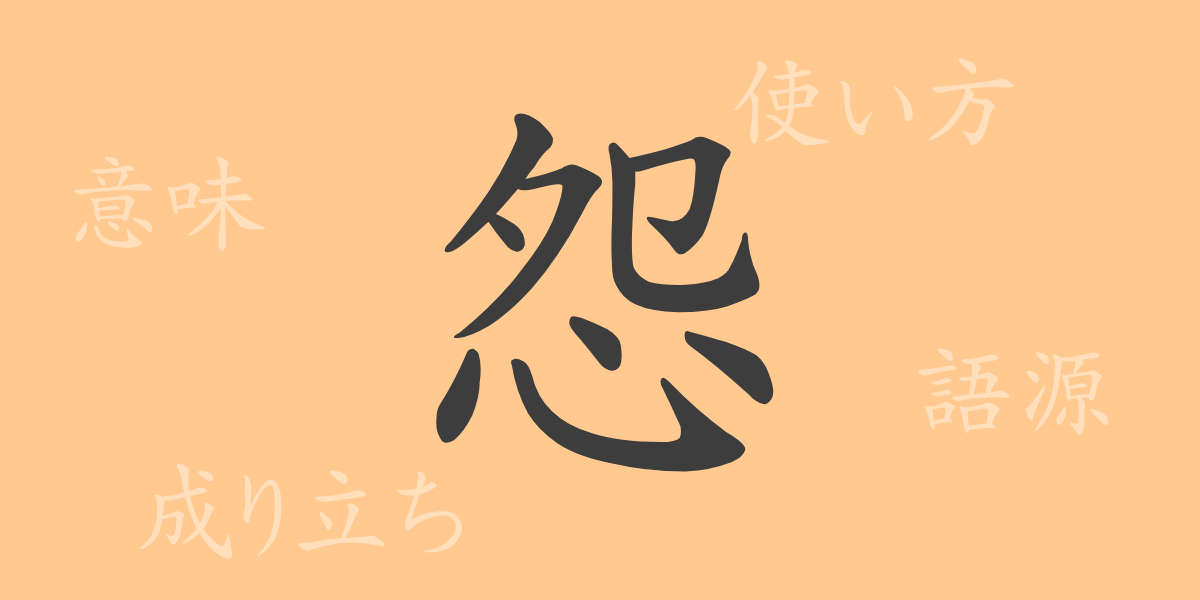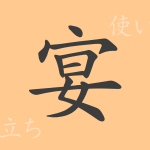“
Kanji characters, which have been passed down from ancient times, each have their own unique history and meaning, shaping the emotions and culture of the Japanese people. “”怨”” (On) is one such kanji, symbolizing the expression of deep feelings and the complexity of human relationships. In this article, we delve into the full scope of the common kanji “”怨,”” from its etymology to its meaning, usage, and even compound words and proverbs.
The Origin of 怨 (On)
The kanji “”怨”” has evolved from pictograms in ancient China. Originally, it was used to represent the dissatisfaction or resentment harbored within one’s heart, and its shape is said to symbolize the emotions hidden within. Over time, it came to be used not only for negative emotions such as resentment and hatred but also for the events or objects that give rise to such emotions.
The Meaning and Usage of 怨 (On)
The kanji “”怨”” primarily refers to negative emotions such as resentment and hatred. It is used to express dissatisfaction with others or obsession with past events. In literature and everyday conversations, this kanji may also be used to depict tension or conflict in human relationships.
Reading, Stroke Count, and Radical of 怨 (On)
Understanding the reading and components of the kanji “”怨”” can lead to a deeper understanding.
- Reading: The on’yomi reading is “”えん”” (En), and the kun’yomi readings are “”うら.む”” (Ura.mu) and “”うら.めしい”” (Ura.meshii).
- Stroke Count: “”怨”” has a total of 9 strokes.
- Radical: The radical of this kanji is “”心”” (Kokoro), and it is classified as a kanji representing emotions.
Compound Words, Idioms, and Proverbs Using 怨 (On) and Their Meanings
There are many compound words, idioms, and proverbs that include “”怨,”” each with a deep meaning.
- 怨敵 (Onteki): An enemy or foe held in resentment.
- 怨念 (Onnen): A deep sense of resentment.
- 怨霊 (Onryou): A vengeful spirit unable to find peace due to resentment.
- 恩怨 (On’en): Gratitude and resentment. Both the good and bad feelings that arise between people.
- 無怨無徳 (Muen mutoku): A state of being unrelated, with neither resentment nor gratitude.
Conclusion on 怨 (On)
The kanji “”怨”” is a highly expressive character used to represent the depths of human emotions. Its use plays an important role in conveying the subtleties of emotions in literature and everyday life. While feelings of resentment and grudges are often seen as negative, expressing them can also lead to a path of resolution. Understanding and appropriately using kanji like this can lead to richer communication.
“

























